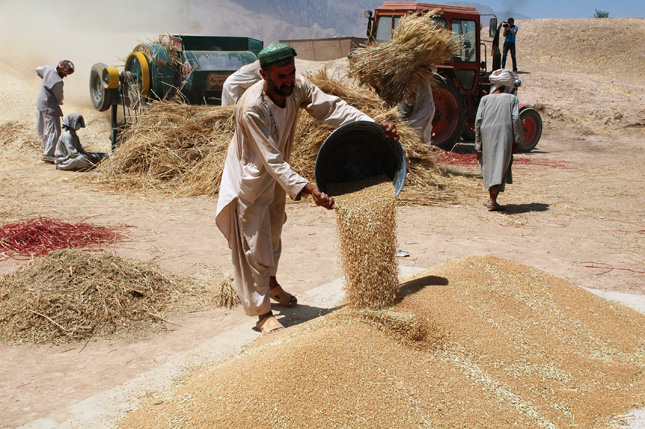-
Feeding the Future? One Year After the Global Food Security Act
August 10, 2017 By Anuj Krishnamurthy
“The United States should maintain a unique leadership role in global food security,” said former Senator Richard Lugar at a recent Center for International & Strategic Studies event, “The U.S. Global Food Security Strategy: Progress, Setbacks, and Forward Momentum,” which marked the one-year anniversary of the passage of the Global Food Security Act. Signed into law on July 20, 2016, the act required the interagency Feed the Future initiative to develop the first-ever U.S. Global Food Security Strategy.
Food security “is a basic justice issue for people around the world today,” said Senator Bob Casey (D-PA), in his introductory remarks. “We have an obligation to do all we can to reduce the likelihood that an individual anywhere in the world suffers from hunger, malnutrition, food insecurity.” Casey highlighted the potential for devastating famines in Nigeria, South Sudan, Somalia, and Yemen, four countries where 20 million people are at an immediate risk of starvation.
“Our food security investments are strategically important to the United States,” said Lona Stoll, deputy vice president of sector operations at the Millennium Challenge Corporation (MCC). Last year, the MCC signed a $437 million compact with Niger to support irrigation projects, infrastructure development, and regulatory reform. These investments, according to Stoll, will enhance the Nigerien government’s capacity as a “U.S. partner in the fight against extremism and in promoting stability in the region.” Robert Bertram, chief scientist at the U.S. Agency for International Development’s (USAID) Bureau of Food Security, praised the “broad American alliance that is engaged on food security” – including academic institutions, agribusinesses, and farmer cooperatives. In areas where USAID nutrition programs operate, child stunting has fallen from 56 percent in 1990 to 38 percent in 2014.
Despite the progress we’re making, there’s no time for complacencyIn the years ahead, tackling the challenge of food insecurity will remain an urgent necessity. “Despite the progress we’re making, there’s no time for complacency,” Bertram said, “because we have over 3 million children a year dying from causes relating to undernutrition.” Food insecurity and spikes in food prices can worsen human suffering during violent conflicts, irreparably harm the physical development of children, and accelerate political instability.
The resources and know-how of the private sector, however, can be an important asset in the fight against hunger, said Bruce Cameron, a program director at the Overseas Private Investment Corporation (OPIC). “This is a perfect opportunity to leverage the U.S. private sector – to help them create jobs here while we create opportunities abroad,” he said, citing the various financial services – such as direct lending, loan guarantees, and political risk insurance – that OPIC provides to investors.
Ultimately, fully embracing the cause of global food security will prove beneficial both for the countries receiving U.S. government support and the United States, the panelists concurred. “This is not a one-way street of us just helping others,” said Bertram. “We are gaining in the process, whether it’s because pests or diseases don’t respect political boundaries… or with respect to new export opportunities, as these countries emerge from extreme poverty.”
Read More:
- An ECSP Report on the connections between food security, conflict, and cooperation
- Insights into fighting famines and food insecurity
- How population growth is complicating Feed the Future’s mandate
- The importance of reproductive health services to meeting food security goals
Sources: Center for Strategic and International Studies, U.S. Agency for International Development, U.S. Congress
Photo Credit: Wheat harvest in the Afghanistan town of Balkh during the USAID AVIPA project, June 2009, courtesy of USAID Afghanistan
Topics: agriculture, Congress, development, Feed the Future, food security, foreign policy, nutrition, On the Beat, poverty, U.S., USAID
 A Publication of the Stimson Center.
A Publication of the Stimson Center.



